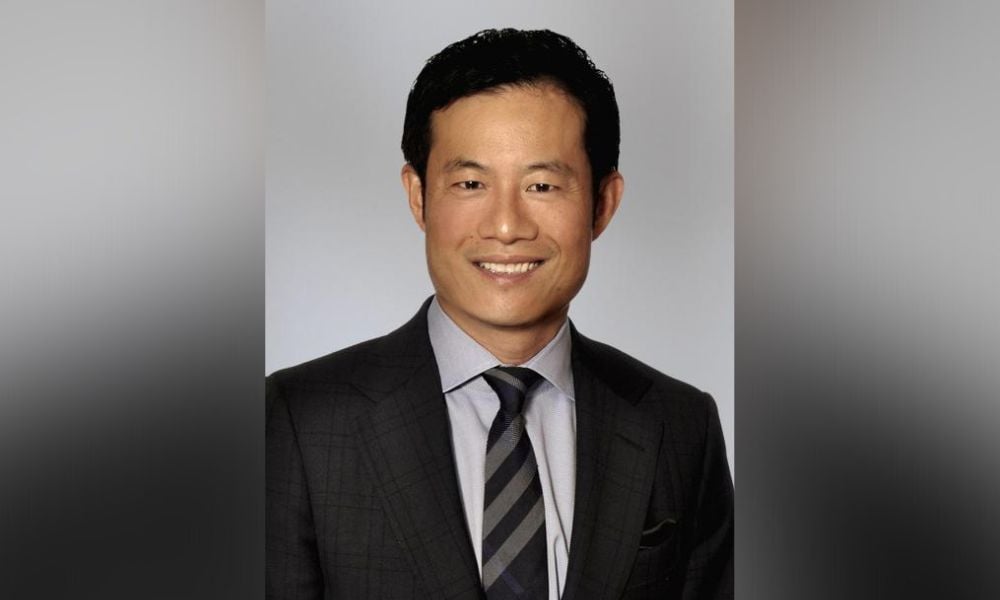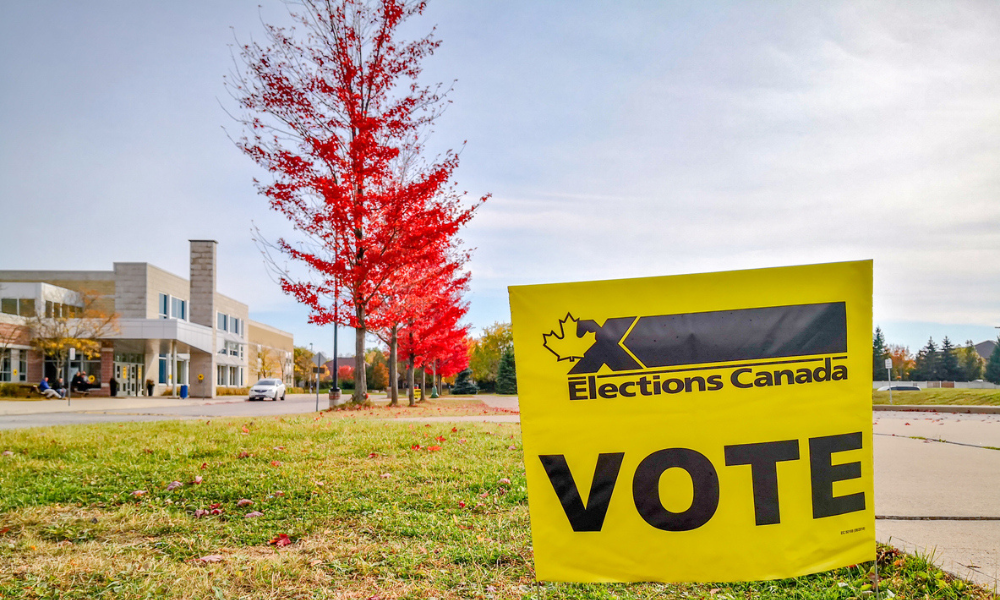Wong aims to help diverse young lawyers overcome unspoken assumptions

Richard Wong was surrounded by infrastructure from an early age. His father was a civil engineer who worked with SNC Lavalin on large-scale global projects like the CANDU nuclear reactor structures.
But his father advised him against an engineering career. Wong’s father told him he should not just be “the person who does the calculations and figures out the problem” but instead be the person “who puts the deal together.”
This advice has stuck with Wong throughout his career.
Most Read
As his father did for him, Wong aims to impart the same lesson to young lawyers through the numerous mentoring activities he facilitates: You can be a leader, not just a “worker bee.”
It is a stereotype, Wong says, that many Asian lawyers fight against. It is often unspoken but can create a limitation that Wong hopes to help others overcome.
“You have to show that you are not just a worker but an owner.”
As chair of Osler, Hoskin & Harcourt LLP’s construction & infrastructure group, Wong has taken his father’s advice to heart, both in his career and how he advises young lawyers.
Growing his practice and leadership in infrastructure
Wong decided the legal profession would be an excellent place to take on leadership roles, but it took him several years to find his place as an “owner” at a large Bay Street law firm.
His father’s job allowed Wong to see many countries from a young age, sparking an interest in international development. Wong then studied economics and law at the University of Toronto and exposed himself to international leadership opportunities. He trained and became a private in the Canadian Army Reserve with the Toronto Scottish Regiment in the Infantry Division and got involved in a global business exchange club. He did a summer in Guatemala working for Habitat for Humanity and visited Brazil doing homestays.
When Wong graduated from law school, his passion for land development and construction was strong. Many of his family members had immigrated from Hong Kong to Richmond Hill just before the hand back of Hong Kong to China. This long-term wave of people and money into Canada had touched off a development boom that Wong wanted to integrate into his legal career. His mother was also a real estate agent with a busy practice within the Korean community in Toronto.
Wong gravitated to DelZotto, Zorzi, a commercial real estate boutique with prominent land developer clients focused on Asian communities. He began practising real property and land development law at the firm.
Construction wasn’t top of mind for him yet, and his work at the time was more about land acquisition and the development process. Wong was initially exposed to construction law through a litigation file.
He was given a file in motions court to have a construction lien vacated. Wong still recalls how he forgot to make the court copy with a blue back, so in desperation borrowed a blue highlighter from the master’s assistant and highlighted the back page blue.
The master turned the motion materials over to endorse the record and lifted it to show the court, saying, “What’s this, Mr. Wong, a watercolour?”
Wong did get the lien vacated but quickly decided he did not want to be a litigator. But he knew he wanted to grow beyond the straight real estate development practice into construction law.
Wong eventually moved to Goodman and Carr, where the firm encouraged him to build an infrastructure practice from his experience in land development. He appreciated the firm’s support but felt he was not receiving the mentoring he needed to become a construction leader.
“While the firm had some exposure to the construction industry, it was difficult to leverage a broader practice, but I saw it as taking one step beyond where I was towards my goal, and so attended numerous industry events.”
Wong also met with Osler, which had a construction law team that could provide the mentoring he wanted.
So, he kept in contact with them and was eventually invited to join the firm. Wong worked with the construction group founder and chair Don Marston, Rocco Sebastiano, Bob Beaumont, and Harvey Kirsh and eventually became an equity partner in 2009.
In 2016, he became chair of the construction practice group. Throughout that time, Wong began to realize how quickly law was specializing. He felt he had found a team of colleagues at Osler who shared his passion for construction and engineering.
Mentoring Asian lawyers at Osler and beyond
As Wong settled into Osler, he began to provide mentoring to other lawyers with a similar background to his, a rare sight on Bay Street.
“I am one of the few East Asian partners at Osler,” Wong says. “It's relatively easy for me to use my position to open doors, knowing it will be good for the firm and give back to the community.”
Wong has served for many years as Osler’s internal partner lead for the Osler Asia Pacific affinity network, a group of more than 40 Osler lawyers. Outside the firm, he wanted to give back to the broader Asian community. “Osler has a fantastic welcoming culture. And so, I realized that I can also play a role as a bridge to allow the culture of Osler to extend even further.”
Having a Korean background on his maternal side, Wong volunteered with the Korean Canadian Lawyers Association. Most recently, Osler hosted 50 lawyers for the KCLA’s year-end AGM.
But Wong has also expanded to the broader Asian community, recently hosting over 100 young lawyers and law students for a Federation of Asian Canadian Lawyers event at his firm’s office. The annual event theme was “speed mentoring,” where participants sit at narrow tables and mentors meet mentees for short introductions.
Wong says the support Osler provides to him to be a mentor and leader for the Asian community can also be a positive example for other large law firms.
“I'm very much a proponent for making other seven sisters jealous of what we're doing in the hopes that they will then go back to their folks and say, look, we’ve got to up our game.”
At the networking events, Wong says it is often about helping younger lawyers understand how to overcome stereotypes and see themselves as leaders like his father advised him to do.
“That is an area that isn’t talked about; how does the system work? Sometimes calling out the perception is the first step…. There are a lot of things I can convey on the progression. I do fear that folks don’t mentor enough. It is about developing champions. What I say is that you really want someone to champion you when you are not there.”
In other words, Wong wants to provide sound advice on leadership, like his father did many years before.










